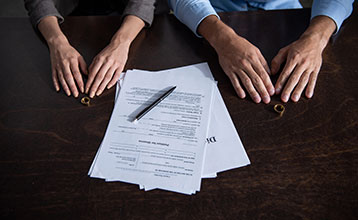Wife Maintenance
The crucial question for the courts to consider in each family’s circumstances is, of course: how much maintenance should be given to the wife and for how long?
Is the ex-wife in a divorce automatically entitled to maintenance? Maintenance for the wife is primarily a way of meeting her needs when there is a divorce.
If the wife has given up a career to bring up the children, the court is likely to grant her maintenance for the duration of her life as there is no way for her to get back her career.
On the other hand, maintenance may not be lifelong as it is meant to help the spouse get back on her feet to regain self-sufficiency.
The crucial question for the courts to consider in the case of wife maintenance is how much maintenance should be given and for how long?
The Singapore court has, in the case of ATE v ATD recently laid down three broad guiding principles as to when nominal wife maintenance may or may not be awarded.
First, nominal maintenance is not awarded automatically or as a matter of course.
Second, the court will not award nominal wife maintenance merely based on a wife’s assertion that her situation will change in the future.
Third, in deciding whether to award nominal maintenance, the court must always bear in mind the underlying rationale and purpose of an award of maintenance to former wives.
The overarching principle embodied in section 114(2) of the Women’s Charter is that of financial preservation, which requires the wife to be maintained at a standard that is, to a reasonable extent, commensurate with the standard of living she had enjoyed during the marriage – but section 114(2) has to be applied in a “commonsense holistic manner that takes into account the new realities that flow from the breakdown of marriage”.
Furthermore, the duty of a husband to maintain his wife during the marriage, as provided by s 69(1) of the Act, and the obligation to provide maintenance to a former wife under s 113 of the Act are driven by separate forces. As Prof Leong Wai Kum pointed out in Elements of Family Law in Singapore [(LexisNexis, 2007)] at p 476:
“In the former situation, the objective is to provide modest maintenance, namely, to help her overcome her immediate financial need, which may well be the same objective when ordering maintenance for a dependent child. In the latter situation, maintenance ordered for a former wife, however, serves the far more ambitious objective of giving her a fair share of the surplus wealth that the spouses had acquired during the subsistence of the marriage.”
Since the power to order wife maintenance is supplementary to the power to order division of matrimonial assets, courts regularly take into account each party’s share of the matrimonial assets when assessing the appropriate quantum of maintenance to be ordered: see, for example, BG v BF [[2007] 3 SLR(R) 233] at [75]−[76], Rosaline Singh [[2004] 1 SLR(R) 457] at [13]; Tan Bee Giok at [27] and AQS [[2012] SGCA 3] at [51].
The award of maintenance for a former wife takes into account the fact that the former wife ought to try to regain self-sufficiency and that an order of maintenance is not intended to create life-long dependency by the former wife on the former husband (see the Singapore High Court decision of Quek Lee Tiam v Ho Kim Swee (alias Ho Kian Guan) [1995] SGHC 23.
If you require assistance with maintenance, don’t hesitate to get in touch with us for a free consultation.


